Individual Assistance
This page is intended to assist individuals, homeowners, and renters in Delaware following a disaster. If you are a government entity or private non-profit, see our Public Assistance section.
Disaster recovery begins immediately after the threat to human life has subsided. The aftermath of storms, floods, and other emergency events can be stressful to navigate. If assistance is available in your local community, understanding your needs and learning where to access resources can help reduce stress.
Following a disaster, there are important actions you can take including contacting your insurance company for immediate assistance if you're insured, calling your utility provider for outages, and reporting damages to your primary residence. Damage reports not only alert recovery relief partners of an impacted community's needs, but also assists local government and emergency officials in determining a disaster's scale.
Report Your Damages ASAP
Help Us, Help You!
Disaster impacted individuals should report their damages as early as possible. Damage reports can help the state of Delaware apply for federal aid on behalf of its residents.
If you are a homeowner or renter and your primary residence was impacted by a disaster, click the button below to learn how to quickly and securely report your damages, using DEMA's Damage Reporting Tool.
How Reporting Damages Helps You and Your Community
Ensures Faster Assistance
Reporting your damages provides critical information that helps local and state officials determine the extent of the disaster event. The faster damages are reported, the quicker emergency partners can act to help bring recovery relief aid to affected communities.
Supports Resource Allocation
Local emergency officials use damage reports from the community to understand where and what the greatest needs are.
Identifying Unmet Needs
Not all disaster impacts are immediately visible. Damage reports may help individuals identify hidden issues to their primary residence, such as mold growth from floods, structural instability, or temporary housing needs. Always stay alert of potential safety hazards and never put yourself in unsafe environments! Be cautious in avoiding washed-out roads, contaminated water, gas leaks, shattered glass, and damaged electrical wiring.
Those impacted should continue to monitor the news for recovery updates including food, clothing, temporary housing needs, and other recovery efforts.
Delaware's local, state, and nonprofit partners work together to support residents and communities impacted by disasters. Direct assistance may come from several organizations. Here are just some resources that may support your specific needs:
(866) 438-4636
Assistance for natural disasters and house fires, providing survivors with clean water, safe shelter, hot meals, in addition to other recovery services.
The Red Cross Shelter Locator is a quick, easy-to-use tool that allows individuals to quickly locate nearby shelters during emergencies. For additional info, visit:
Dependent on income eligibility, DHSS may provide food supplement (SNAP), Emergency Housing Services, cash benefits, childcare, medical assistance, and assistance to aging adults and those with disabilities. DHSS offers information on Public Health Concerns, Animal Welfare, 24/7 Behavioral Health Crisis Services, Personal Finance, Medicaid/Health, Substance Abuse and Mental Health, and Homelessness.
DSHA aims to efficiently provide, and assist others to provide, quality, affordable housing opportunities and appropriate supportive services to low- and moderate-income Delawareans. They provide services such as the Statewide Emergency Repair Program (SERP), which addresses emergency conditions threatening the health and safety for income-eligible Delaware owner occupants and household members.
To search for state employment: Delaware State Jobs
For unemployment assistance: Division of Unemployment Insurance.
Delaware State Office: (302) 472-0750
Emergency assistance with sheltering, clothing, housing, food, and other disaster services.
The U.S. Small Business Administration (SBA) disaster loans may be available to homeowners, renters, nonprofit organizations, and businesses of all sizes in areas covered by a disaster declaration; either Governor or Presidential. The SBA provides low-interest disaster loans to repair or replace real estate, personal property, machinery & equipment, inventory and business assets that have been damaged or destroyed in a declared disaster.
Delaware 211 connects families to health and human service organizations throughout Delaware.
If you need food, shelter, clothing, or other assistance, they are a free, confidential referral, and information helpline connecting people to essential health and human services with or without a disaster event.
Delaware 211 has multilingual community resource specialists available in your area that can put you in touch with local organizations that provide critical services to Delaware citizens.
Available for non-profit organizations, municipalities, and established non-governmental partners who are assisting disaster survivors.
Improves Long-Term Recovery Efforts
Reporting damages doesn't just help with immediate needs—it can also play a crucial role in long-term recovery planning. Communities that have accurate damage data may be able to secure funding for rebuilding efforts, infrastructure repairs, and mitigation projects to prevent future disasters.
Helps Secure Federal Disaster Declarations
When the impact of a disaster is widespread and exceeds state resources and capabilities, local and state government may seek additional federal assistance through a disaster declaration. These declarations require documented evidence of a disaster's impact. Damage Reports become critical at this point. The more damage reports received, the stronger the case for Delaware to obtain additional federal recovery assistance if needed. If a Presidential Disaster Declaration is granted by the President, this would unlock additional federal funding and resources aiding impacted communities through FEMA's Individual Assistance Program.
DisasterAssistance.gov - There are many things to think about when you return home or find you need to rebuild after a disaster. Visit DisasterAssistance.gov for resources to help assist with returning home, cleaning up damage, and rebuilding.








